It’s so important for our community to come together (virtually) during this difficult time. Here are some resources we’ve found that may be helpful if Coronavirus has created hardships for you and your family.
BASIC NEEDS
Access Arkansas
Online application for SNAP, TEA, Child Care Assistance, etc.
Website
Arkansas 2-1-1
For basic human needs, physical and mental health resources, employment support and support
for children.
Website // (479) 365-2147 or (866) 489-6983
Arkansas Drug Card
Provides prescription assistance. Visit website for prescription discount.
Website
FOOD PANTRIES
Bread of Life (First United Methodist Church)
Food Pantry: Wednesdays and Thursdays 9 AM – 11:30 AM at 208 W. Emma Avenue, Springdale
Clothing Closet: 130 N Main, Springdale. Currently open by appointment only. Call (479) 751-4610 Option #3 Wednesday – Thursday 9 AM – 11:30 AM.
CARE Community Center
Basic needs, food pantry and cooking classes.
2510 N. 17th Street Suite 203, Rogers
Website // (479) 246-0104 or (479) 246-0110
Centro Cristiano Assemblies of God Church
Food pantry on the last Wednesday of the month from 9 AM – 11 AM. No requirements.
2121 S. 1st Street, Rogers
Website // (479) 631-2259
Compassion Center – Feed the 479 Pantry
Food and clothing.
Monday – Wednesday 5 PM – 7 PM and Thursday 9:30 AM -11:30AM
Valid ID required
3157 W. Sunset, Springdale
Website // (479) 717-5630
Cross Church Compassion Center
Food pantry offering groceries via drive thru
2407 S Thompson St, Springdale
Website // Facebook
Food Access Map
Maps out food pantries, markets, schools
Website
NWA Food Bank
Lists of food distribution sites across Northwest Arkansas
Partner agency food distribution // Mobile pantry distribution
HELP FINDING RESOURCES
Hark at the Center for Collaborative Care
Assistance with free and confidential needs assessment and a customized resource plan. Also, possible access to financial assistance programs
Website // Español // Marshallese // Facebook
NWA COVID-19 Resource Map
Google map showing the location of resources throughout the NWA area
Single Parent Scholarship Fund of Northwest Arkansas
List of school district meal distribution as well as other online community resources (including utility support, emergency housing, food pantries)
Website
United Way of Northwest Arkansas
Call 211 for access to a support person who can direct you to resources to find food, pay housing bills, access free childcare, and other essential services: dial 211 from your phone
Local COVID-19 health information and resources
UTILITIES
Black Hills Energy
Temporarily suspended disconnections
Website
Cox Communications
Providing the first 2 months free of Connect2Compete; resources for discounted, refurbished equipment; and phone and remote desktop support at no charge
Website
Ozarks Electric
Suspended disconnections for non-payment effective March 16 through April 15
Website
PGTelco
Suspended late fees and disconnections for non-pay starting March 16 for 60 days
Website // Facebook
Rogers Water Utilities
Temporarily suspended disconnections
Website
SWEPCO
Temporarily suspended all service disconnections for non-payment
Website
 Answered by Team Lead & Advocate Supervisor Victoria Boyd
Answered by Team Lead & Advocate Supervisor Victoria Boyd Answered by Team Lead Kristen Smith
Answered by Team Lead Kristen Smith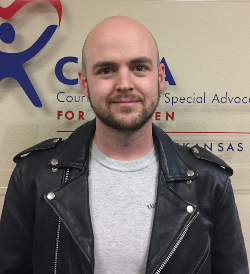 What’s it like to
What’s it like to 
 When looking for adaptable, caring, and supportive volunteers, CASA won the lottery with Susan Hantz. A retired nursing professor, Susan has volunteered with CASA for three and a half years, serving six children across three different cases. Susan has served these children relentlessly as is exhibited by her time, attention to little details, and use of trauma focused care.
When looking for adaptable, caring, and supportive volunteers, CASA won the lottery with Susan Hantz. A retired nursing professor, Susan has volunteered with CASA for three and a half years, serving six children across three different cases. Susan has served these children relentlessly as is exhibited by her time, attention to little details, and use of trauma focused care.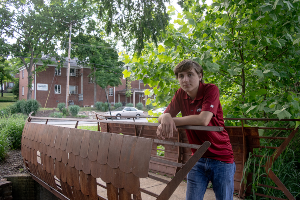 The relationship between an advocate and a teenager differs greatly from a relationship between an advocate and a young child. As the signs and effects of persistent trauma and neglect manifest differently in older youth, it’s an advocate’s role to recognize these signs and respond appropriately. On a day-to-day basis, how a CASA volunteer communicates with their child differs based on age, emotional intelligence, and level of independence. While young children may need a hand to hold while they walk, teenagers often just want someone to walk beside them and ask them how their day was.
The relationship between an advocate and a teenager differs greatly from a relationship between an advocate and a young child. As the signs and effects of persistent trauma and neglect manifest differently in older youth, it’s an advocate’s role to recognize these signs and respond appropriately. On a day-to-day basis, how a CASA volunteer communicates with their child differs based on age, emotional intelligence, and level of independence. While young children may need a hand to hold while they walk, teenagers often just want someone to walk beside them and ask them how their day was.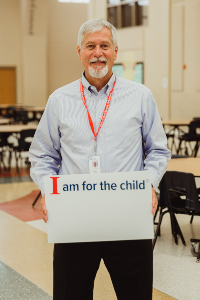 Though he says some moments are more challenging than others, Joe knows being a CASA is worth it when he sees both of the boys succeed in school or in their jobs. With each twist and turn, Joe is not scared of the process, but takes life as it comes and does what he can to be a mentor and helper to his teens. When asked to give advice to prospective CASA volunteers, Joe simply said: “Prepare yourself for frustration. Be patient, hold your judgment, keep your compassion, and try to understand a child’s background.”
Though he says some moments are more challenging than others, Joe knows being a CASA is worth it when he sees both of the boys succeed in school or in their jobs. With each twist and turn, Joe is not scared of the process, but takes life as it comes and does what he can to be a mentor and helper to his teens. When asked to give advice to prospective CASA volunteers, Joe simply said: “Prepare yourself for frustration. Be patient, hold your judgment, keep your compassion, and try to understand a child’s background.” From the very beginning of the case, Debbie told the kids she would always be honest with them. She insists she doesn’t sugarcoat things. “They need to know that somebody cares enough to be upfront with them.” When she’s checking in with the kids about their health or discussing important topics like placement and adoption, it’s too important to do anything but lay down the honest truth. That doesn’t mean those conversations are easy. The eldest, a teen boy, shared with Debbie that he thought he was too old to be adopted and worried that he was preventing his younger siblings from being adopted. What kind of trust must Debbie have built for this sweet boy to be so vulnerable?
From the very beginning of the case, Debbie told the kids she would always be honest with them. She insists she doesn’t sugarcoat things. “They need to know that somebody cares enough to be upfront with them.” When she’s checking in with the kids about their health or discussing important topics like placement and adoption, it’s too important to do anything but lay down the honest truth. That doesn’t mean those conversations are easy. The eldest, a teen boy, shared with Debbie that he thought he was too old to be adopted and worried that he was preventing his younger siblings from being adopted. What kind of trust must Debbie have built for this sweet boy to be so vulnerable?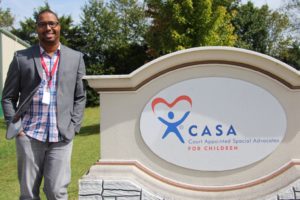
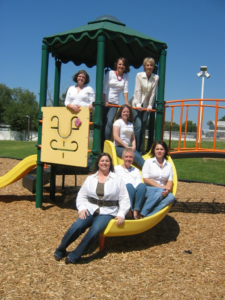
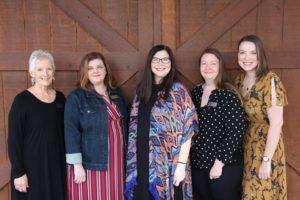
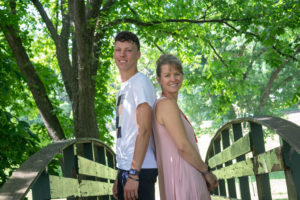 This has been a tremendous year for many of our teens! In total, fifteen of our young people graduated high school or earned their GED this spring. Talk about beating the odds! We are proud that CASA could play a role in any of their success. One of our graduates shared, “My CASAs have helped a lot. They are very supportive in many ways. Maybe most importantly, they have provided emotional support which encourages me to reach my goals.”
This has been a tremendous year for many of our teens! In total, fifteen of our young people graduated high school or earned their GED this spring. Talk about beating the odds! We are proud that CASA could play a role in any of their success. One of our graduates shared, “My CASAs have helped a lot. They are very supportive in many ways. Maybe most importantly, they have provided emotional support which encourages me to reach my goals.”